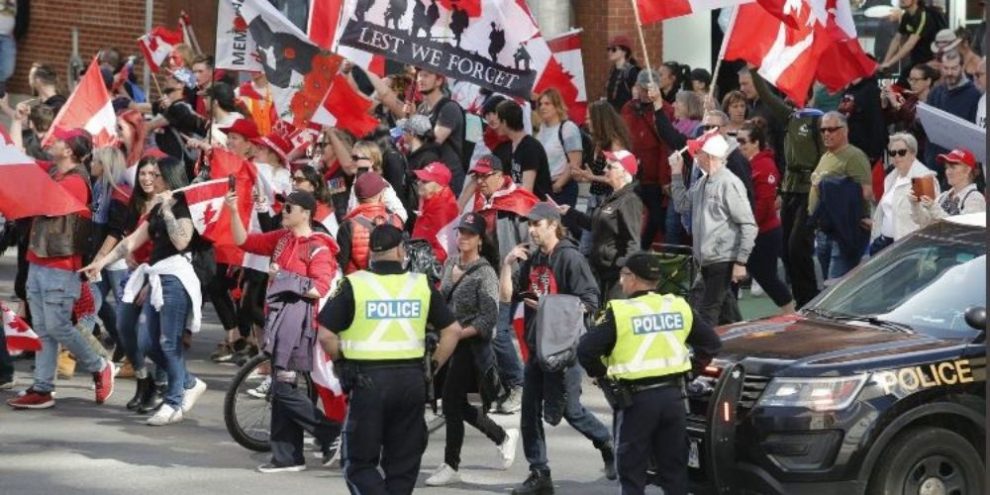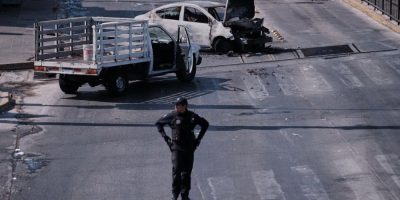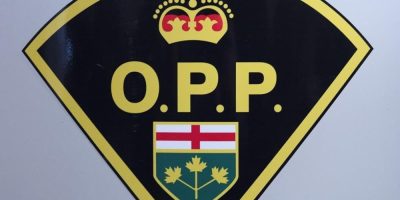
By Sarah Ritchie in Ottawa
Throughout seven weeks of public hearings in Ottawa, the Public Order Emergency Commission heard from more than 100 witnesses and released thousands of pages of documents.
This evidence raised many questions about the actions taken by the Liberal government.
Here are some key questions Justice Paul Rouleau addressed.
Can the commission make a determination without seeing all the evidence?
The Public Order Emergency Commission considered evidence from a variety of sources and people, including information that was considered to be protected by cabinet confidence.
However, the eight federal cabinet ministers who testified did not disclose the advice they received from government lawyers, which told them the legal threshold had been met to invoke the act for the first time since it replaced the War Measures Act in 1988.
Critics said it would be difficult, if not impossible, for the commissioner to determine whether the government's actions were justified if he could not see the legal advice given to cabinet.
But Rouleau said each of the federal government witnesses testified during the hearings about what they understood to be the legal threshold for invoking the act, and each said they felt that had been met. Therefore, he knew cabinet believed their decision was justified.
"Some suggestion was made that in the absence of disclosure of the legal advice that cabinet received, which is protected by solicitor-client privilege, it cannot be known whether its decision conformed to that opinion. I do not accept this argument."
Were all police resources exhausted when the Emergencies Act was invoked on Feb. 14?
A critical piece of evidence during the public hearings was the revelation that just hours before Prime Minister Justin Trudeau announced plans to invoke the act and give police extraordinary powers to end the protests, RCMP Commissioner Brenda Lucki had expressed reservations about whether that was necessary.
In an email to Public Safety Minister Marco Mendicino's chief of staff, Lucki wrote that she did not feel all available options had been exhausted under existing statutes, including the Criminal Code, to quell the demonstrations.
That sparked major criticism from opposition parties in particular, who cited the email as evidence that the government did not meet the threshold to declare an emergency.
Rouleau did not agree.
In his report, the commissioner said that cabinet was told there were tools and authorities that had not been used and that it was not particularly significant that Lucki did not raise this in the Feb. 14 meeting of federal officials.
"It is clear that legal tools and authorities existed; the problem was that these powers, such as the power to arrests, were not being used because doing so was not thought to be an effective way to bring the unlawful protests to a safe and timely end."
Didn't Ottawa police have a plan to end the protests by Feb. 13, without the Emergencies Act?
Throughout the hearings last fall, the commission learned that Ottawa police lacked a plan to deal with the protests from the moment they arrived in the city. As time went on, witnesses cited internal squabbling and a lack of effective communication as reasons why no official plan was created.
The prime minister said he was not confident that local police had the situation under control and he felt federal action needed to be taken.
But some Ottawa police witnesses were adamant they had a plan to end the protests by the time the federal government invoked the Emergencies Act, and that had the RCMP commissioner communicated that to cabinet, the emergency declaration might not have been needed.
However, Rouleau said while the Feb. 13 version of the Ottawa police plan was a significant development, he is "not prepared to find that it would have made a difference." He said Lucki had significant doubts about police leadership in Ottawa at the time, and that her telling the federal officials about the plan likely wouldn't have changed their minds.
"Federal officials had repeatedly been told a plan was in place without any apparent results. Several ministers and officials also had concerns about police leadership in Ottawa, many of which I have found to be valid."
Was Canada's economy under threat?
Finance Minister Chrystia Freeland and her cabinet colleagues testified during public hearings that the protests at the border with the United States, particularly the blockade of the Ambassador Bridge in Windsor, Ont., threatened Canada's economy and its international reputation.
Freeland said it was clear to her that Canada's reputation as a reliable trading partner was at stake, and this was part of the determination that Canada was in a national emergency.
But Rouleau said the Emergencies Act does not, and was not intended to, capture economic crises. He acknowledged that cabinet should consider the impacts of economic disruptions that threaten the lives, health and safety of Canadians, and take that into account when deciding whether there is a national emergency at play.
"Financial costs and trade impacts are not sufficient in themselves, and I have not considered them to be so. What is relevant, however, is the human health and public safety consequences that may flow from a serious, sudden, prolonged, and deliberate disruption to economic security and the ability to earn a living."
Should the Liberals have met with protesters to hear them out?
Opposition critics and protesters themselves have said the Ottawa demonstrations could have been resolved if the federal government and Trudeau had met with protest leaders and heard their concerns.
But Rouleau said he did not think that would have helped.
While the federal government did consider an "engagement proposal" to meet with protest organizers, Rouleau noted that attempts to negotiate in Windsor had not succeeded, and said while it was a "good faith effort by public officials to try to solve the problem," it was reasonable that the government didn't pursue a meeting.
"I accept that meeting with an undefined group of organizers with no clear leadership, when in any event there was little likelihood of predicting, let alone controlling, the protesters' actions, was unlikely to resolve matters."
Were the government's public messages about the protests appropriate?
The commissioner did offer a criticism of the way the government communicated with and about the protesters.
Throughout the "Freedom Convoy" and the similar events it inspired in April and July in Ottawa, protesters embraced the term "fringe minority" with flags, signs and clothing bearing the slogan "We the Fringe."
That phrase came from a comment made during a televised address by Trudeau on Jan. 27, when he said the majority of Canadians did not agree with the "small fringe minority of people who are on their way to Ottawa, or who are holding unacceptable views."
In a press conference four days later, Trudeau said most Canadians were disgusted and shocked by the presence of Nazi and Confederate flags at the protests and said he would not meet with people who promote hate.
The prime minister's comments were interpreted as referring to the entire protest and, in Rouleau's opinion, served to energize and embitter the protesters.
"It may well be that his comments were taken out of context, including by some media. However, in my view more of an effort should have been made by government leaders at all levels during the protests to acknowledge that the majority of protesters were exercising their fundamental democratic rights."
Banner image: People march past police at a demonstration, part of a convoy-style protest, in Ottawa, on Saturday, April 30, 2022. THE CANADIAN PRESS/ Patrick Doyle
This report by The Canadian Press was first published Feb. 17, 2023.





